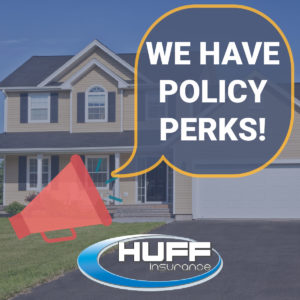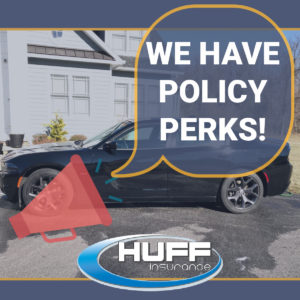Guarding Health and Workplace Safety
Workplace safety and health are such critical issues that the Government has a whole department and numerous laws devoted specifically to the subject. And, although it legal terms it makes a difference whether you’re the employer or employee, in practical terms both groups share a responsibility to safeguard their wellbeing in the factory, the office, the farm, the field, of wherever they work.
The main legislation covering these workplace safety issues is the Occupational Safety & Health Act (OSHA). It’s been around for decades – since 1970 in fact – but still forms the backbone of rules that govern a safe working environment and conditions. It’s worth taking the time to get to know it; fortunately, there’s a summary that you’ll find at http://tinyurl.com/OccSafety.
OSHA also stands for the Government’s Occupational Safety & Health Administration, of which most states also have their own divisional offices. In addition, state Attorney General offices and Departments of Business Affairs (or similar names) also have information and responsibilities connected with workplace safety.
Even without the benefit of laws, a number of commonsense guidelines can make a big difference to everyone’s workplace safety. That should start with having a written health and safety code or policy, which is publicly posted and given to every employee.
Let’s review some of the workplace safety guidelines
Cleanliness And Tidiness:
Many workplace accidents are caused by falls and trips over misplaced or neglected objects. People just leave stuff lying around, without thinking – until someone falls over it. Make it a policy to return these objects to their “home” even if you weren’t the person who left it out in the first place. Dangerous materials, of course, should always be stored securely. Similarly, poor hygiene in workplace bathrooms and kitchens are a key source of contagious infection. Washing hands and/or using anti-bacterial wipes, and keeping sinks and other work surfaces clean will eliminate much of the risk.
Heating And Ventilation:
A comfortable temperature and a supply of good, fresh air, not only makes for a pleasant work environment but also contributes significantly to productivity. People work better when they feel right. Obviously, certain types of jobs – such as working in a furnace area or refrigerated plant – operate in extremes of temperature, in which clothing and hydration are key considerations. For the rest of us, temperatures in the 68 to 76 degree range, and humidity of 20 to 60%, are best.
First Aid Skills And Equipment:
A first aid kit is an essential component of any workplace. So too should be fire extinguishers (regularly checked and serviced) and alarms. A safety-conscious work environment might also have a portable defibrillator for emergency resuscitations, a first aid room, and trained first-aiders, of whom there should be at least one in every workplace. Whether employer or employee, make it your business to know who your first aiders are. If there isn’t one, get one or become one.
Wearing The Right Clothes & Using Equipment Correctly:
Certain jobs demand the use of special safety equipment – steel-capped shoes, hard hats, protective suiting, ear-muffs and protective eyewear for example. There’s a reason for each one, so make sure you wear the right clothes for you job. Naturally, you should not wear loose clothes when operating machinery. Treat workplace equipment with respect – whether it’s a robot or a stapling machine and you’re less likely to be injured or cause injury to others.
Emergency Plans & Drills:
Everyone should know what to do in case of emergency. Companies should have an emergency plan – OSHA requires it in some cases – mainly to deal with evacuation, responding to a catastrophe or dealing with specific risks associated with the nature of the business. As an employee, make it your priority to find out about and read these plans. If there isn’t one, request it and be prepared to help put it together. Emergency plans need to be put to the test regularly – there’s no substitute for practice, except the real thing.
One of the best sources for information about disaster planning is the National Safety Council (www.nsc.org) offers members a huge library of resources including a template you can download and follow that covers all the planning essentials.
Stress In The Workplace
If you suffer frequent headaches, sleep disturbances, difficulty with concentrating, short temper, poor digestion and feel low in spirits, you may be experiencing the symptoms of stress. Naturally, if this happens, you should see a physician. But there are things you and your employer can do to prevent it from happening in the first place. For instance:
- Finding a job that you enjoy that’s in line with your skills and experience. If you find yourself struggling, you need to alert your supervisor and seek either a change or appropriate training.
- Poor time management is a key contributor to a feeling of generally being out of control. If you can’t get formal training at work, consider a college class or even a good training manual, of which there are plenty.
- Make sure you clearly understand what is expected of you. Employers are responsible for clearly defining roles and responsibilities.
- If you feel you are being victimized or bullied, sometimes by your own colleagues – a not uncommon problem these days – take action: speak to your supervisor and/or seek a transfer.
- Be comfortable with your work schedule and work within it. Take the breaks, days owing and vacations you’re entitled to. And if you’re sick, take sick leave – you help others as well as yourself if you have something contagious.
- Outside of the workplace, try to exercise regularly and have a hobby or pastime that takes your mind away from job-related issues. Looking after yourself with the correct diet and right amount of sleep also helps.
A Safer, Cleaner Environment
Thankfully, smoking is now banned in most workplaces and in the vicinity of entrances. If you must smoke, please think of those who don’t and stay well clear of them while you indulge your habit.
Another key element in workplace safety is what specialists these days refer to as “ergonomics”. This is about having a physically comfortable working environment. Most commonly it refers to seating and desk arrangement in offices but we can broaden that to embrace the whole of your workspace. You spend probably around 8 hours a day in this location so you need to ensure it meets reasonable standards of comfort and usability.
Whether you’re an employee or an employer, you should also be aware of other potential environmental hazards in today’s workplaces. These include asbestos (mainly in older buildings), which has to be removed by a specialist and lead found in paint, dust, food, water and even in the air.
Allergies seem to be an increasing issue. Many people suffer seasonal allergies – rhinitis or “hay fever” as it’s sometimes called. It used to be that pollen was regarded as the main cause but these days we also recognize dust as a culprit – and that’s inescapable, especially at work. Talk to your specialist physician about non-drowsy antihistamines and long term inoculations.
Of course, if you do take a medication that causes drowsiness, you shouldn’t operate machinery and you should certainly tell your employer. It’s worth noting that pollen filters for air conditioning systems are relatively inexpensive and it might be possible to install one in the workplace.
Other personal issues that might impinge on your ability to work might include latex allergy, fear of confined spaces or other phobia. You need to be upfront about this with your employer and your colleagues, thereby reducing the likelihood of an incident.
Tackling Issues
As an employee, it’s not the easiest thing in the world to complain to your boss or supervisor about some element of the job you’re unhappy with.
You worry about being seen as a whiner or even about the security of your job. The way to go about this is to seek a meeting, prepare carefully (and in writing) in advance, maintain your calm and an aura of reasonableness during a meeting, supporting your claims with hard facts.
If your request is reasonable and you don’t get what you want, you’re working in the wrong place!
Huff Insurance is Here to Help
If you’d like to discuss insurance issues connected with this or any other area of activity, we’re only an email or phone call away. Proper workplace safety protocols can reduce workers compensation insurance claims. Call us at 410-647-1111
 Is it possible to only pay for what you need for your car insurance?
Is it possible to only pay for what you need for your car insurance?


 Boats and Jetskis/Waverunners
Boats and Jetskis/Waverunners The answer is YES you can. The TV and radio commercials lead you to believe that policy perks for
The answer is YES you can. The TV and radio commercials lead you to believe that policy perks for  YES you can. We know there is a national insurance company touting their policy perks on TV and radio on a daily basis.
YES you can. We know there is a national insurance company touting their policy perks on TV and radio on a daily basis.







